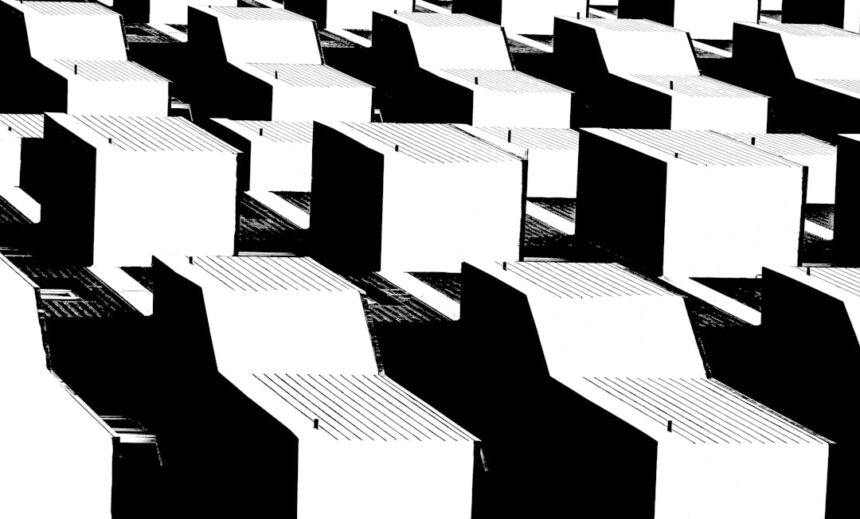Depersonalization and derealization are complex psychological phenomena that can leave individuals feeling detached from themselves and their surroundings. You may find yourself questioning your own reality, as if you are observing your life from a distance, or feeling as though the world around you is not quite real. This disconnection can be unsettling and confusing, often leading to a sense of isolation.
Understanding these experiences is crucial, as they can significantly impact your mental health and overall well-being. The terms “depersonalization” and “derealization” are often used interchangeably, but they refer to distinct experiences. Depersonalization involves a sense of detachment from oneself, where you might feel like an observer of your own thoughts and actions.
Derealization, on the other hand, pertains to a feeling of unreality regarding your environment, where the world may seem distorted or dreamlike. Both experiences can occur together, creating a profound sense of disorientation that can be difficult to articulate. As you navigate through this article, you will gain a deeper understanding of these phenomena and their implications for those who experience them.
Key Takeaways
- Depersonalization Derealization is a mental health condition characterized by feeling detached from oneself and the surrounding environment.
- Symptoms of Depersonalization Derealization include feeling like an outside observer of one’s thoughts and actions, experiencing a sense of unreality, and emotional numbness.
- Depersonalization Derealization can significantly impact daily life, leading to difficulties in relationships, work, and overall functioning.
- Seeking help and receiving a proper diagnosis is crucial in managing Depersonalization Derealization, as it can often be misdiagnosed or overlooked.
- Treatment options for Depersonalization Derealization may include therapy, medication, and self-care practices, tailored to each individual’s needs.
Understanding the Symptoms of Depersonalization Derealization
Recognizing the symptoms of depersonalization and derealization is the first step toward understanding your experience. You may notice that you feel disconnected from your thoughts, emotions, or body, as if you are watching yourself from outside your own skin. This sensation can be accompanied by feelings of numbness or emotional detachment, making it challenging to engage with your own feelings or the feelings of others.
You might find it hard to concentrate or remember details about your life, leading to frustration and confusion. In addition to these internal experiences, derealization can manifest in external perceptions. You may perceive your surroundings as foggy or distorted, as if you are living in a dream.
Familiar places may seem unfamiliar, and everyday objects might appear strange or unreal. These symptoms can fluctuate in intensity, sometimes triggered by stress or anxiety, and can leave you feeling vulnerable and anxious about your mental state. Understanding these symptoms is essential for recognizing when you might need support or intervention.
The Impact of Depersonalization Derealization on Daily Life

Living with depersonalization and derealization can significantly affect your daily life. You may find that simple tasks become overwhelming when you feel disconnected from yourself or your environment. Activities that once brought you joy may now feel hollow or unfulfilling.
This disconnection can lead to difficulties in maintaining relationships, as you might struggle to connect with friends and family on an emotional level. The sense of isolation can be profound, making it challenging to reach out for help or express what you are experiencing. Moreover, the impact on your mental health can be substantial.
You may experience heightened anxiety or depression as a result of feeling detached from reality. The constant questioning of your own experiences can lead to a cycle of self-doubt and fear, further exacerbating feelings of isolation. It’s important to recognize that these challenges are not a reflection of your character but rather symptoms of a condition that requires understanding and support.
Acknowledging the impact on your daily life is a crucial step toward seeking help and finding ways to cope.
Seeking Help: The Journey to Diagnosis
| Stage | Metrics |
|---|---|
| Initial Symptoms | Number of symptoms reported |
| Doctor Visits | Number of visits before diagnosis |
| Diagnostic Tests | Types of tests conducted |
| Time to Diagnosis | Duration from initial symptoms to diagnosis |
The journey to diagnosis can be daunting when dealing with depersonalization and derealization. You may find yourself grappling with uncertainty about what you are experiencing, often leading to feelings of frustration and confusion. It’s common to question whether what you are feeling is “normal” or if it signifies something more serious.
Seeking help is an essential step in this journey, but it often requires courage to reach out and share your experiences with a mental health professional. When you finally decide to seek help, the process typically begins with an evaluation by a therapist or psychiatrist who specializes in dissociative disorders. They will likely ask about your symptoms, medical history, and any potential triggers that may contribute to your experiences.
This assessment is crucial for developing an accurate diagnosis and understanding the underlying factors contributing to your depersonalization and derealization. While this process may feel overwhelming at times, it is an important step toward reclaiming your sense of self and reality.
Treatment Options for Depersonalization Derealization
Once diagnosed, various treatment options are available to help manage depersonalization and derealization symptoms. Therapy is often the cornerstone of treatment, with cognitive-behavioral therapy (CBT) being particularly effective for many individuals. In CBT, you will work with a therapist to identify negative thought patterns and develop coping strategies that can help ground you in reality.
This therapeutic approach aims to empower you by providing tools to challenge distorted perceptions and reconnect with your emotions. In some cases, medication may also be considered as part of a comprehensive treatment plan. Antidepressants or anti-anxiety medications can help alleviate symptoms associated with anxiety or depression that often accompany depersonalization and derealization.
However, medication is typically used in conjunction with therapy rather than as a standalone solution. It’s essential to work closely with your healthcare provider to determine the best course of action tailored to your specific needs.
Coping Strategies for Living with Depersonalization Derealization

In addition to professional treatment, developing coping strategies can be invaluable in managing depersonalization and derealization in daily life. Grounding techniques are particularly effective for many individuals; these methods help anchor you in the present moment when feelings of detachment arise. Simple practices such as focusing on your breath, engaging in physical activities, or using sensory experiences—like holding an ice cube or listening to music—can help bring you back to reality.
Another helpful strategy is maintaining a journal where you can express your thoughts and feelings about your experiences. Writing can serve as an outlet for processing emotions and reflecting on moments when you felt more connected to yourself or the world around you. Additionally, establishing a routine that includes self-care practices—such as regular exercise, healthy eating, and sufficient sleep—can contribute positively to your overall mental health and resilience against symptoms.
The Importance of Support Systems
Having a strong support system is crucial when navigating the challenges of depersonalization and derealization. Friends and family who understand what you are going through can provide comfort and reassurance during difficult times. It’s important to communicate openly with those close to you about your experiences so they can offer their support effectively.
You might consider joining support groups where individuals share similar experiences; connecting with others who understand can foster a sense of belonging and reduce feelings of isolation. Additionally, mental health professionals play a vital role in your support system. Regular therapy sessions provide a safe space for you to explore your feelings and develop coping strategies tailored to your needs.
Building a rapport with your therapist can enhance the therapeutic process, allowing you to feel more comfortable discussing sensitive topics related to your experiences with depersonalization and derealization.
A Personal Account: Living with Depersonalization Derealization
Imagine waking up one day feeling like a stranger in your own body; this is how many individuals describe their experience with depersonalization and derealization. You might recall moments when everything felt surreal—conversations seemed distant, and familiar places appeared foreign. For some, this sensation can last for days or even weeks, creating an ongoing struggle between wanting to feel connected and grappling with overwhelming detachment.
Sharing personal accounts can shed light on the complexities of living with these conditions. Many individuals report feeling misunderstood by those around them; friends may dismiss their experiences as mere stress or fatigue without recognizing the depth of their struggle. This lack of understanding can exacerbate feelings of isolation and frustration, making it even more challenging to seek help or connect with others who truly understand what they are going through.
Overcoming Challenges: Success Stories
Despite the challenges posed by depersonalization and derealization, many individuals have found ways to overcome their struggles and reclaim their lives. Success stories often highlight the importance of perseverance in seeking help and developing coping strategies that work for them personally. You might find inspiration in stories where individuals have transformed their experiences into opportunities for growth—using their journey as a catalyst for self-discovery and resilience.
These success stories serve as reminders that recovery is possible; they illustrate how individuals have learned to navigate their symptoms while still pursuing their passions and maintaining meaningful relationships. By sharing these narratives, you contribute to a broader understanding of depersonalization and derealization, helping others realize they are not alone in their experiences.
Educating Others: Raising Awareness about Depersonalization Derealization
Raising awareness about depersonalization and derealization is essential for fostering understanding and compassion within society. Many people remain unaware of these conditions, often dismissing them as mere stress responses or fleeting feelings of anxiety. By educating others about the complexities of these experiences, you contribute to reducing stigma and promoting empathy for those who struggle with them.
You might consider engaging in conversations about depersonalization and derealization within your community or online platforms dedicated to mental health awareness. Sharing resources, personal stories, or informative articles can help demystify these conditions for others while encouraging open dialogue about mental health issues more broadly. The more people understand what depersonalization and derealization entail, the more likely they are to offer support rather than judgment.
Finding Hope and Healing
In conclusion, while living with depersonalization and derealization presents unique challenges, it is essential to remember that hope and healing are possible. By seeking help, developing coping strategies, and building supportive relationships, you can navigate these experiences more effectively. Understanding that you are not alone in this journey is crucial; many individuals have walked similar paths toward recovery.
As you continue on this journey, embrace the small victories along the way—whether it’s finding moments of connection in daily life or learning new coping techniques that resonate with you. Remember that healing is not linear; it takes time and patience.
In exploring the complexities of depersonalization-derealization disorder, a case study can provide valuable insights into the lived experiences of individuals grappling with this condition. A related article that delves into the nuances of psychological disorders and their impact on mental health can be found on Unplugged Psychology’s website. This resource offers a comprehensive look at various psychological phenomena, including depersonalization and derealization. For further reading, you can visit the article by following this link. This article provides a broader context and understanding, complementing the detailed examination found in specific case studies.
LEARN MORE About Unmasking the Mysteries Behind Depersonalization and Derealization
FAQs
What is depersonalization-derealization disorder?
Depersonalization-derealization disorder is a mental health condition characterized by a persistent or recurring feeling of being detached from one’s own body or feeling like the world around them is unreal. This can lead to significant distress and impairment in daily functioning.
What are the symptoms of depersonalization-derealization disorder?
Symptoms of depersonalization-derealization disorder may include feeling like an outside observer of one’s thoughts, feelings, and actions (depersonalization) and feeling like the world around them is unreal or distorted (derealization). Other symptoms may include emotional numbness, disconnection from one’s own identity, and difficulty engaging in daily activities.
What are the potential causes of depersonalization-derealization disorder?
The exact cause of depersonalization-derealization disorder is not fully understood, but it is believed to involve a combination of biological, psychological, and environmental factors. Trauma, stress, anxiety, and certain personality traits may contribute to the development of this disorder.
How is depersonalization-derealization disorder diagnosed?
Depersonalization-derealization disorder is diagnosed based on a thorough psychological evaluation, including a discussion of symptoms, medical history, and ruling out other potential causes. There are no specific tests for this disorder, so diagnosis relies on the individual’s reported experiences.
What are the treatment options for depersonalization-derealization disorder?
Treatment for depersonalization-derealization disorder may include psychotherapy, such as cognitive-behavioral therapy (CBT) or dialectical behavior therapy (DBT), to help individuals understand and manage their symptoms. Medications, such as antidepressants or anti-anxiety medications, may also be prescribed in some cases. Self-care strategies, stress management techniques, and support from loved ones can also be beneficial.
Is depersonalization-derealization disorder a common condition?
Depersonalization-derealization disorder is considered relatively rare, with prevalence estimates ranging from 1-2% of the general population. However, it is possible that the disorder is underreported and underdiagnosed due to the subjective nature of the symptoms.




